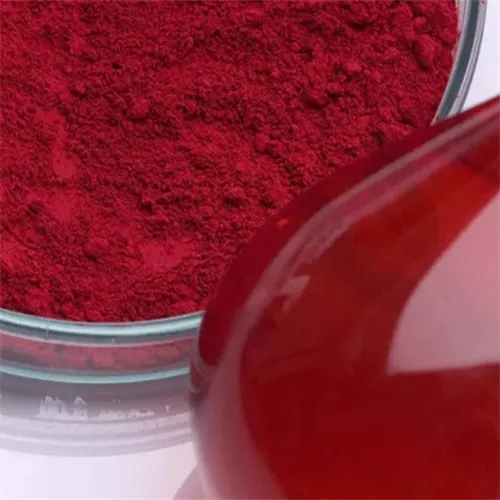Warning: Undefined array key "title" in /home/www/wwwroot/HTML/www.exportstart.com/wp-content/themes/1198/header.php on line 6
Warning: Undefined array key "file" in /home/www/wwwroot/HTML/www.exportstart.com/wp-content/themes/1198/header.php on line 7
Warning: Undefined array key "title" in /home/www/wwwroot/HTML/www.exportstart.com/wp-content/themes/1198/header.php on line 7
Warning: Undefined array key "title" in /home/www/wwwroot/HTML/www.exportstart.com/wp-content/themes/1198/header.php on line 7
- Afrikaans
- Albanian
- Amharic
- Arabic
- Armenian
- Azerbaijani
- Basque
- Belarusian
- Bengali
- Bosnian
- Bulgarian
- Catalan
- Cebuano
- China
- China (Taiwan)
- Corsican
- Croatian
- Czech
- Danish
- Dutch
- English
- Esperanto
- Estonian
- Finnish
- French
- Frisian
- Galician
- Georgian
- German
- Greek
- Gujarati
- Haitian Creole
- hausa
- hawaiian
- Hebrew
- Hindi
- Miao
- Hungarian
- Icelandic
- igbo
- Indonesian
- irish
- Italian
- Japanese
- Javanese
- Kannada
- kazakh
- Khmer
- Rwandese
- Korean
- Kurdish
- Kyrgyz
- Lao
- Latin
- Latvian
- Lithuanian
- Luxembourgish
- Macedonian
- Malgashi
- Malay
- Malayalam
- Maltese
- Maori
- Marathi
- Mongolian
- Myanmar
- Nepali
- Norwegian
- Norwegian
- Occitan
- Pashto
- Persian
- Polish
- Portuguese
- Punjabi
- Romanian
- Russian
- Samoan
- Scottish Gaelic
- Serbian
- Sesotho
- Shona
- Sindhi
- Sinhala
- Slovak
- Slovenian
- Somali
- Spanish
- Sundanese
- Swahili
- Swedish
- Tagalog
- Tajik
- Tamil
- Tatar
- Telugu
- Thai
- Turkish
- Turkmen
- Ukrainian
- Urdu
- Uighur
- Uzbek
- Vietnamese
- Welsh
- Bantu
- Yiddish
- Yoruba
- Zulu
Nov . 09, 2024 12:07 Back to list
The Impact of Aspartame and Other Artificial Sweeteners on Health and Wellness
Understanding Aspartame The Controversial Artificial Sweetener
In the realm of artificial sweeteners, aspartame stands out as one of the most widely discussed and utilized compounds. Approved by the U.S. Food and Drug Administration (FDA) in 1981, it has since become a staple in various food and beverage products, particularly those labeled diet or sugar-free. Despite its popularity, aspartame has been embroiled in controversy, with varying opinions about its safety and health impacts.
What is Aspartame?
Aspartame is a low-calorie sweetener created through a process that combines two amino acids aspartic acid and phenylalanine. It is approximately 200 times sweeter than sucrose, allowing manufacturers to use it in smaller quantities while still providing a sweet taste. Commonly found in soft drinks, sugar-free gum, yogurts, and various sugar substitutes, aspartame has become a popular choice for individuals looking to reduce caloric intake without sacrificing sweetness.
Safety and Regulation
The safety of aspartame has been evaluated by numerous health organizations worldwide. The FDA, European Food Safety Authority (EFSA), World Health Organization (WHO), and several others have conducted comprehensive reviews of scientific evidence and concluded that aspartame is safe for human consumption within established acceptable daily intake (ADI) levels. The ADI for aspartame is set at 50 milligrams per kilogram of body weight in the United States and 40 milligrams per kilogram in Europe.
Despite these endorsements, aspartame's safety remains a contentious issue among consumers and some health advocates. Certain groups claim that aspartame may be linked to various health issues, including headaches, allergic reactions, and even serious conditions like cancer. However, extensive research has consistently failed to substantiate these claims, leading most scientific bodies to dismiss them as anecdotal or unfounded.
Health Concerns and Myths
artificial sweeteners aspartame

One of the most pervasive myths surrounding aspartame is its alleged connection to neurological disorders. Proponents of this theory highlight anecdotal reports of migraines and seizures in individuals who claim sensitivity to aspartame. While some studies have suggested potential symptoms in susceptible individuals, rigorous research has not established a causal relationship between aspartame consumption and these conditions.
Another frequently cited concern is the relationship between aspartame and cancer. This theory gained traction in the 1980s and 1990s when various animal studies indicated potential links to tumor development. However, subsequent large-scale, long-term studies involving human populations have failed to find significant evidence supporting this association. The majority of health authorities maintain that there is no credible evidence linking aspartame to cancer risk.
Phenylketonuria (PKU)
While most people can safely consume aspartame, there is a notable exception individuals with phenylketonuria (PKU), a rare genetic disorder that impairs the body's ability to metabolize phenylalanine. For those living with PKU, excessive intake of phenylalanine can lead to serious health issues, including brain damage. As a precaution, products containing aspartame are required to carry a warning label indicating their phenylalanine content, ensuring that individuals with PKU can avoid them.
The Bottom Line
With its extensive history and widespread use, aspartame remains one of the most scrutinized food additives. While it is generally recognized as safe by major health organizations, the continued debates over its health impacts illustrate the complexities surrounding public perception of food additives. For most individuals, aspartame can be consumed safely as part of a balanced diet. However, enhancing awareness of personal health conditions, such as PKU, is crucial to making informed dietary choices.
In conclusion, aspartame exemplifies the intersection of science, regulation, and consumer perception in the world of food additives. As research continues to evolve, so too will our understanding of its implications for health and wellness. For now, aspartame remains a viable alternative for those seeking to manage sugar intake and maintain a healthier lifestyle.
Latest news
-
Xanthan Gum Replacement and Powder Insights
NewsJun.06,2025
-
Exploring SLES 70 in Depth
NewsJun.06,2025
-
E1520 Propylene Glycol Uses and Consumption Patterns
NewsJun.06,2025
-
Diethanolamine Multifaceted Uses and Role in Shampoo Formulations
NewsJun.06,2025
-
Caprolactam to Nylon Chemistry and Industry Insights
NewsJun.06,2025
-
Adipic Acid Molecular Weight Significance and Supplier Impact
NewsJun.06,2025

